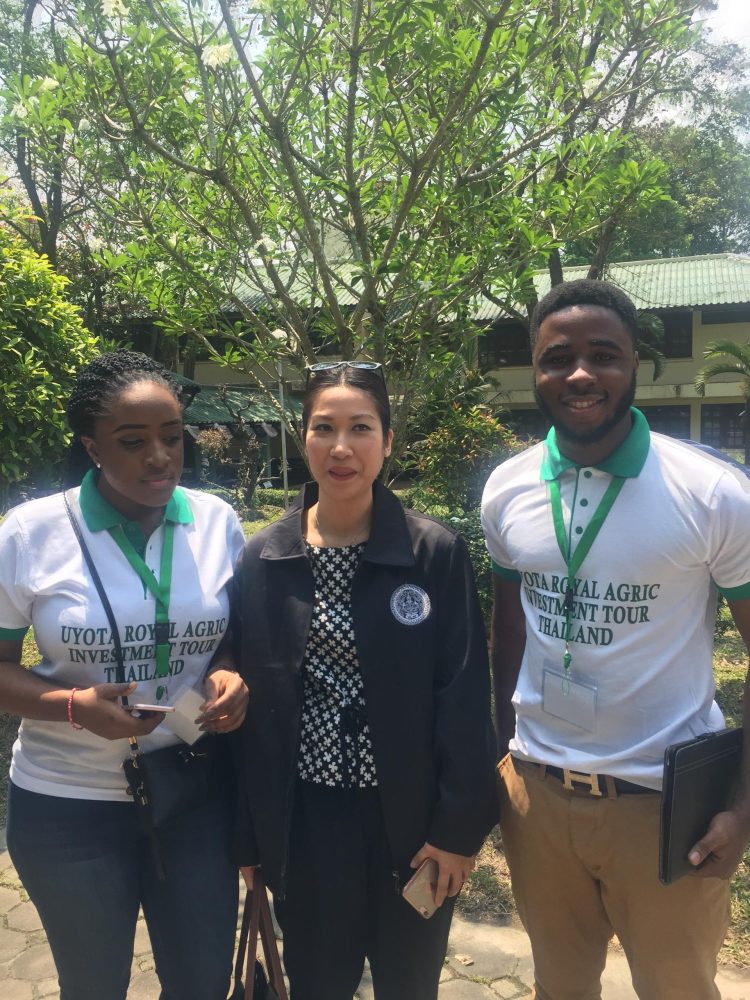With heightened food insufficiency and poverty pervading the country, successful software engineer and the co-founder of Uplifting Youth Through Agriculture (UYOTA), Nnamdi Richie Adigwe has urged the Nigerian government to empower youths to take up careers in agriculture. He believes this would help the country to achieve food sufficiency, take a lot of people out of unemployment, contribute to economic development, and bring benefits to the general population.
But this youth empowerment in agriculture, Adigwe noted, would only be achieved when government infuses technology and modernization into agricultural practices and not the crude methods of the past.

The young entrepreneur who is fully into agriculture, Adigwe stated: ‘To attract young people to agriculture, the government should modernise the perception of farming by integrating technology and demonstrating how it can make agriculture more profitable and less labor-intensive. Showcasing modern farming technologies, such as precision farming, automated irrigation, and drone-assisted agriculture, can make the sector more appealing to young people.’
‘Also, encouraging youth to see farming as a business opportunity rather than just a traditional occupation can also attract youth to be involved in agriculture. This can be achieved through incentives, startup funding, and agribusiness incubators. On the other hand, implementing targeted agricultural programmes, workshops, and mentorship initiatives will expose young people to innovative farming techniques and agribusiness strategies.’
‘Providing subsidies, grants, and low-interest loans to young agripreneurs will reduce entry barriers and enable them to build sustainable businesses. Also, creating platforms for young farmers to connect with investors, industry experts, and experienced farmers will help share knowledge and create growth opportunities.’
‘Another way of encouraging youth involvement in agriculture is by highlighting success stories of young agripreneurs and promoting agriculture through media and social campaigns, these can reshape the perception of farming and encourage more youth participation,’ he highlighted.
When asked by the interviewer, Ngozi Okpalakunne why he is optimistic that leveraging technology can revolutionise agriculture in Nigeria, he remarked that it is already a success story in Thailand so it can work in Nigeria also. ‘Thailand’s agricultural sector is a model of efficiency, innovation, and government support.’
‘One of the key lessons Nigeria can learn is the integration of technology and mechanisation in farming. Thailand has successfully modernised its agricultural practices by adopting precision farming, automated irrigation systems, and drone technology to improve productivity. Another major takeaway is value addition and agro-processing. Thailand does not just focus on raw crop production, it invests heavily in processing and packaging, ensuring that agricultural products meet global market standards. Nigeria can benefit from this approach by developing local processing industries to reduce post-harvest losses and increase export potential. Lastly, agriculture in Thailand is youth-inclusive and market-driven, with a strong emphasis on agribusiness.’
‘Encouraging Nigerian youth to see agriculture as a profitable and tech-driven industry rather than just traditional farming can help attract more young people into the sector and drive sustainable growth. Nigeria’s youth make up over 60 percent of the population, yet many young people shy away from agriculture, often perceiving it as an outdated sector with limited opportunities. However, the adoption of modern farming techniques, precision agriculture, and agri-tech innovations can transform the industry. Young people, being more adaptable to technology, have a crucial role in modernising agriculture whether through smart farming, digital marketplaces, or mechanisation. By embracing innovation and entrepreneurship, they can make agriculture a key driver of economic growth and food security in Nigeria.’
On what informed his interest in agriculture despite having his education in software engineering, Adigwe hinted: ‘My parents were deeply involved in agriculture, so my interest in the field developed naturally long before I became a software engineer. Also my participation in agricultural tour to Thailand some years back was also a motivating factor. My focus now is on how technology can be leveraged to revolutionise agriculture in Nigeria.’
‘I believe software engineering plays a crucial role in advancing smart farming techniques, improving supply chain efficiency, and making agriculture more accessible and profitable for young people’, he concluded.